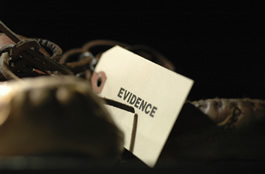Readiness and Response
CDC and FBI Share Investigative Techniques

CDC and the Federal Bureau of Investigation (FBI) are not often thought of as traditional collaborators, yet both federal agencies depend on some of the same skills when solving medical and criminal investigations. In this age of bioterrorism, joint investigations have become more common.
After the anthrax attacks of 2001, CDC and the FBI recognized the importance of developing a protocol for conducting joint investigations. While both agencies had different needs, in some cases they required similar information, and each agency had interview styles that could be beneficial in different situations. Out of this experience, CDC teamed with the FBI’s Weapons of Mass Destruction Directorate to create a book detailing appropriate joint investigation techniques and an annual national-level course for responders from the FBI and CDC.
The pilot courses were held in Florida, California, and Indiana. The courses brought together public health representatives from local, regional, and state levels. On the law enforcement side, representatives were brought in from local and state police agencies and other emergency response organizations. In the pilot courses alone, 212 students were given insight into the joint investigative process.

Students were taught the basics of determining how and when to share investigative information, how to use the skills of each specialty to fully investigate a suspicious outbreak, and how to plan for and conduct joint interviews of patients and contacts. The pilot sites have since reported that they have made significant progress in developing joint investigative protocols, and students continue to learn how to acquire the best information possible to protect lives and the safety of the public.
These courses will be taught at six additional sites in Fiscal Year 2009. In the future, a “train the trainer” version will be developed so that every locality can train and continue to improve their operation, promoting and sustaining CDC’s work in preparing people for emerging health threats.
Related Links
State of CDC
Contact Us:
- Centers for Disease Control and Prevention
1600 Clifton Rd
Atlanta, GA 30333 - 800-CDC-INFO
(800-232-4636)
TTY: (888) 232-6348
24 Hours/Every Day - cdcinfo@cdc.gov

